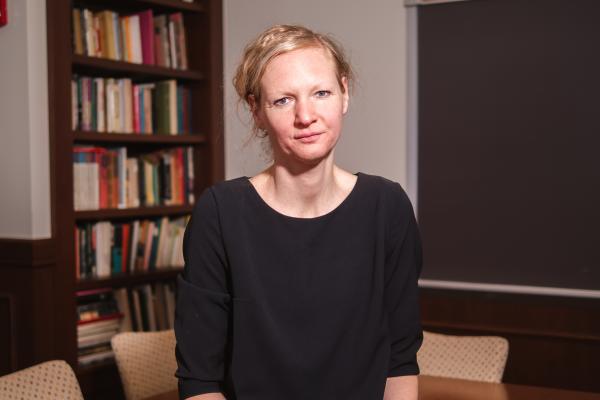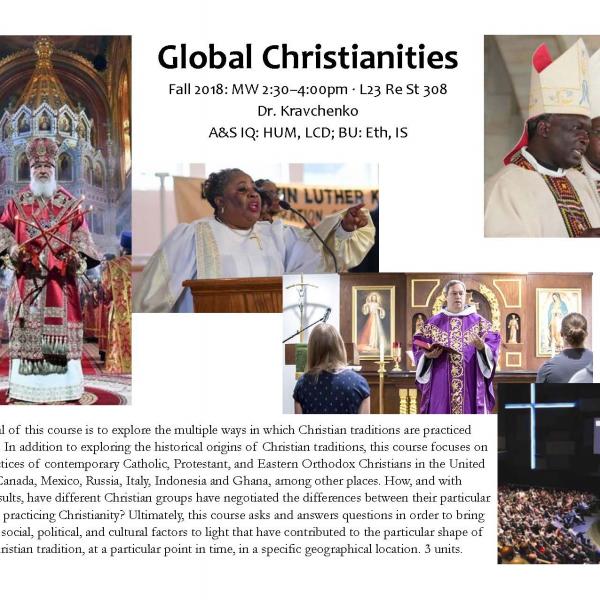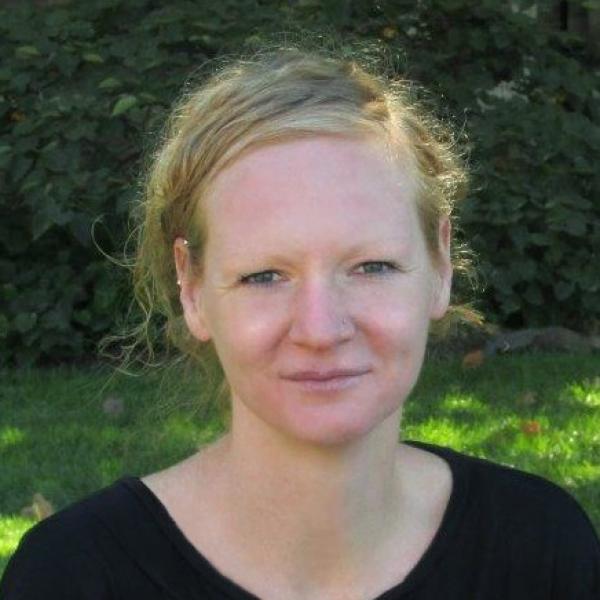Dr. Kravchenko's research and teaching interests includes theory and methods in Religious Studies (including material culture) as well as diasporic religion, trans-Atlantic Christianity and Orthodox Christianity in the United States.
She teaches the required courses for the Religious Studies major and major: Thinking About Religion, an introductory course that explores questions such as “what is religion and how can we study it?” and Theories and Methods in the Study of Religion, an advanced course which continues exploring the question, “What is religion?” by considering classic and contemporary theories in Religious Studies. She also teaches a variety of courses on religion such as: Religion in the Kitchen; Religion, Transnationalism and Diaspora; Global Christianities; and Material Religion.
Dr. Kravchenko serves as the faculty advisor for Theta Alpha Kappa, the National Honor Society in Religious Studies and Theology and works with senior majors to prepare for the annual senior symposium.



